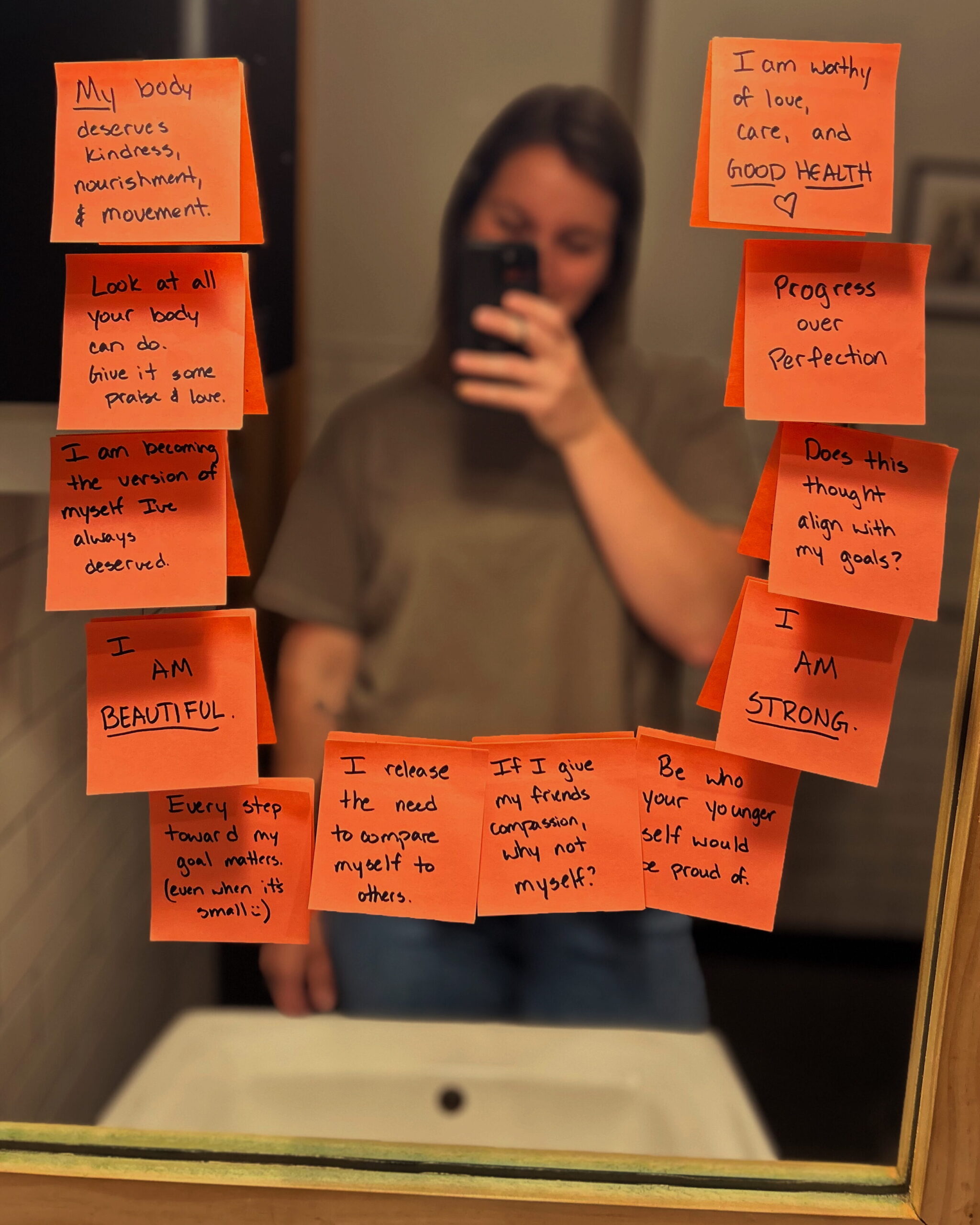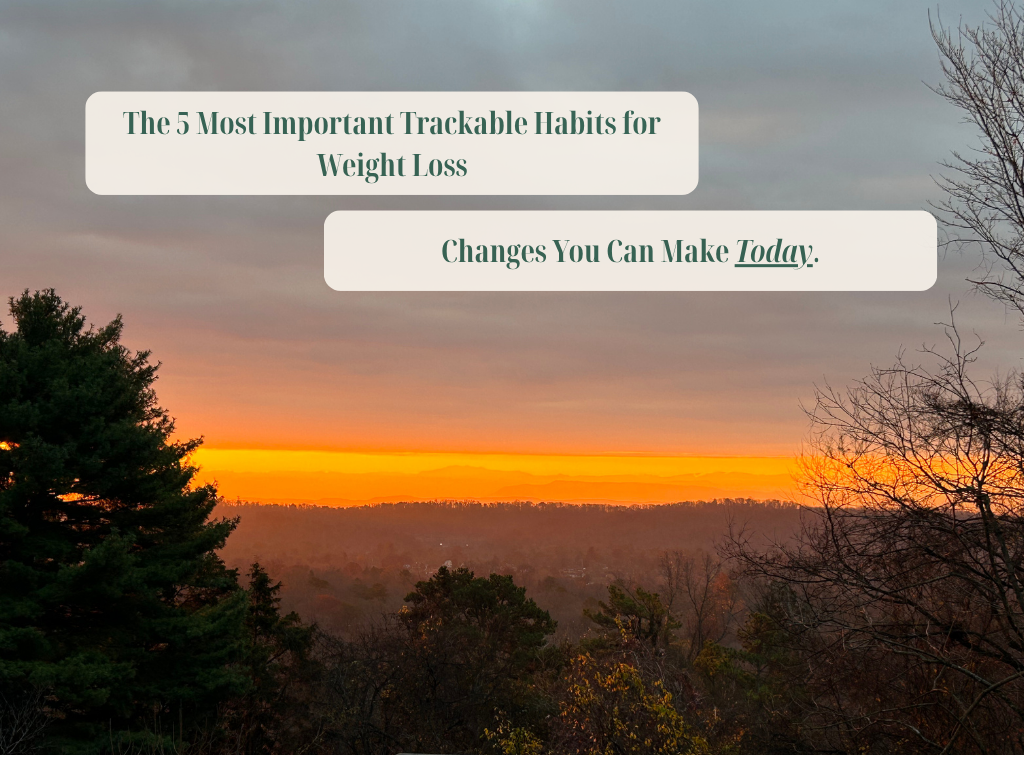Your cart is currently empty!

How to Trick Your Mind into Being on Your Side
If you’ve ever caught yourself spiraling after eating one donut, skipping one workout, or “messing up” your routine, you’re not alone. We’ve all done it. One moment you’re riding the motivation wave, and the next, you’re standing in the kitchen, staring at an empty donut box, calling yourself names you’d never dream of saying out loud to anyone else.
But let me ask you this:
Would you talk to a child like that?
Would you look at a 6-year-old who just scraped their knee and say, “Wow, you’re such a failure. You always mess things up”?
No. You’d hug them. You’d tell them it’s okay. You’d help them back up and remind them they’re still amazing, strong, and growing. (If this is not how you’d respond, stop reading and click here. I can’t help you.)
So why can’t we do that for ourselves?
Imagine Your Inner Self as A Child
One of the most powerful mindset shifts I’ve ever made—and one I encourage my clients and readers to try—is to start treating yourself like a child you deeply care about.
That doesn’t mean babying yourself or ignoring responsibility. It means recognizing that growth requires support, not shame. Progress thrives in encouragement, not criticism.
When a child is learning to walk, we don’t yell at them when they fall. We cheer them on. We celebrate the wobbly steps. We make the environment safer. We stay close so they don’t feel alone. And we keep saying, “Go, go, go!”
Imagine how your health journey would feel if that’s how you talked to yourself.
One Mistake Doesn’t Define You
Let’s go back to that donut moment. Instead of spiraling into guilt, what if you said:
“I ate a donut. Not ideal, but it was tasty. I enjoyed it. And now I move on. One choice doesn’t undo all my progress.”
That might sound overly simple, but it’s exactly how habits work.
In Atomic Habits, James Clear emphasizes that identity shapes behavior. He writes, “Every action you take is a vote for the type of person you wish to become.” Notice—he didn’t say perfection. He didn’t say every action must be flawless. He said every action is a vote. Which means one donut? It’s just one vote. It doesn’t cancel out the other thousand votes you cast by drinking water, walking your dog, stretching, saying no to things that drain you, or choosing veggies at lunch.
One vote doesn’t define the election. It’s the consistent pattern that shapes who you become.
Why Shame Doesn’t Work (and Never Will)
In The Power of Habit, Charles Duhigg breaks down how our brains build habits through cues, routines, and rewards. What’s fascinating is that the emotional environment you create—how you respond to your own actions—plays a huge role in whether a habit sticks.
If every time you “mess up,” you shame yourself, your brain starts associating habit change with pain. And what does your brain do when something feels painful? It avoids it.
Shame might feel productive in the moment (like, “If I just beat myself up enough, maybe I’ll finally change!”), but it actually makes your brain want to check out.
But when you respond with kindness, your brain goes, “Oh, that felt safe. I can try again tomorrow.”

Encouragement Is A Habit, Too
Here’s the part no one talks about:
You have to practice being kind to yourself.
Just like squats or healthy meals or drinking more water—positive self-talk is a habit. It’s not a magic personality trait. It’s a muscle you build.
Start with something small. Maybe each morning, you look in the mirror and say one kind thing (or read it from a sticky note…). Or every time you catch yourself spiraling, you pause and say, “Hey—would I say this to a child I love?”
Because that’s what you are. You are still you, at every age you’ve ever been. That 8-year-old inside of you? She’s still listening. She still wants to be safe, seen, supported. And she deserves to feel proud, even after the donut.
Build a Health Journey With Your Inner Child in Mind
When I work with women who want to feel strong and confident, we start with the basics—movement, mindset, consistency—but beneath all of that is this deeper truth: You will never bully yourself into lasting change.
But you can love yourself there.
So let’s build habits like we’re raising a confident little girl. One who knows that her body is strong. One who believes her feelings matter. One who learns to bounce back when life throws curveballs. One who doesn’t quit because she’s afraid to fail.
That’s how you start showing up differently—not because you have to, but because you want to. You start to crave feeling good. You start to see setbacks as just a part of the path. You stop looking for permission to take care of yourself. You just do it.
Your Challenge This Week
Let’s try this. Just for a week.
Each time you catch yourself being harsh, pause. Put your hand over your heart. Take a breath. And ask:
“What would I say to a child I love?”
Then say that to yourself. Out loud, if you can.
Encouragement doesn’t always feel natural at first. But neither did brushing your teeth when you were a toddler. With practice, it becomes second nature.
Treat yourself like a child. Cheer yourself on. Pick yourself up. And keep going.
You deserve that kind of love—especially from yourself.
*As always, if you feel you need help on your journey, reach out here. I’m always happy to help!
*You also know I can’t preach Atomic Habits enough, so if you haven’t already, get a copy from your local library, or buy one here
-bk



